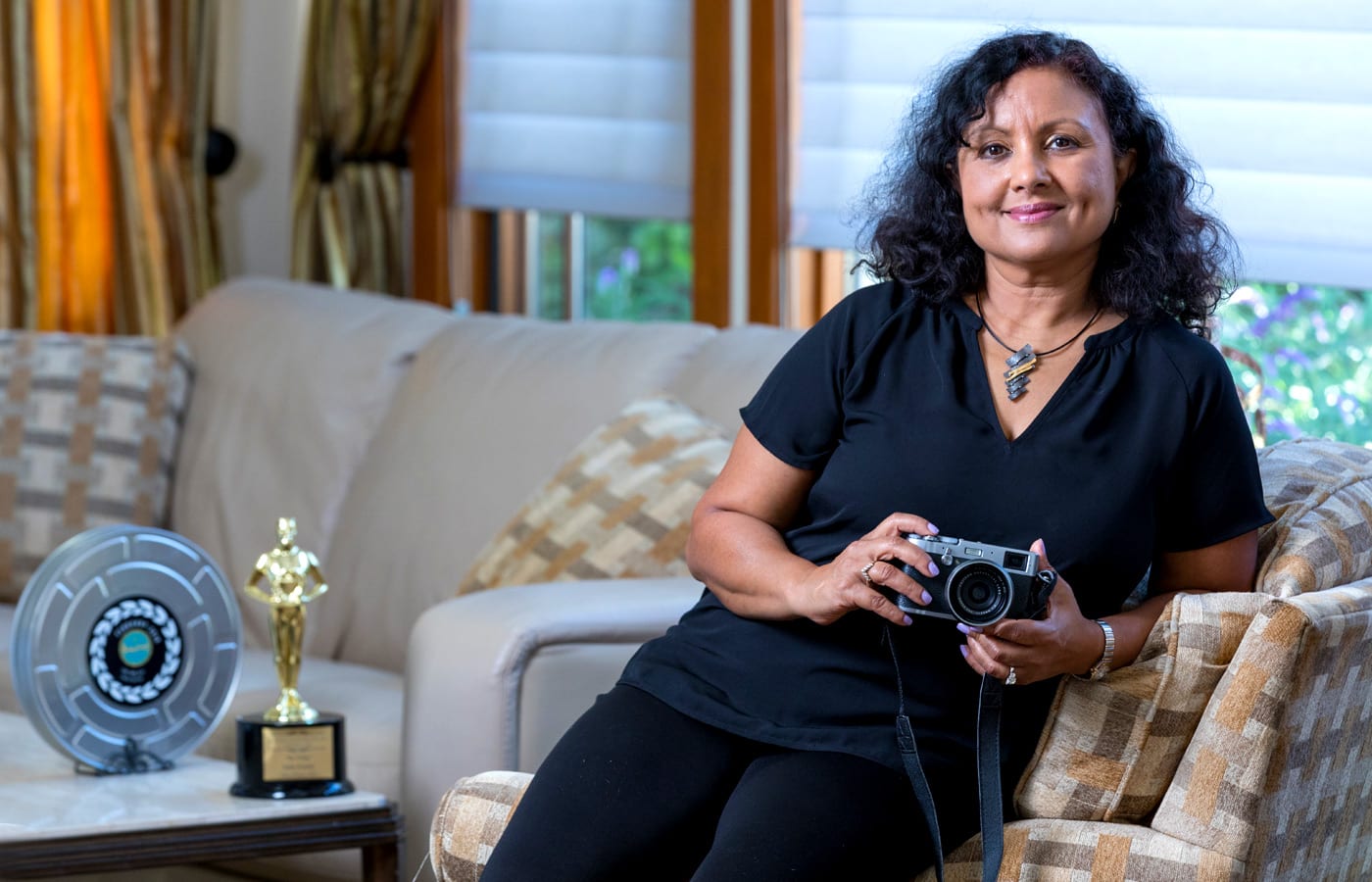Mental Health in Saila Kariat’s The Valley
Coming from a family in which her father is a math professor, her brother has a Ph.D. in physics and her sister is a microbiologist, Saila Kariat’s path to engineering seemed almost predestined.
The Berkeley native, who also lived in India and Canada and earned a bachelor’s degree and Ph.D. from Syracuse University before working in IBM’s Thomas J. Watson Research Center, did well in the high-tech world. She also worked with her husband at a startup he founded and transitioned to flipping houses for a decade as a way to spend more time with her two children. But her work never quite fulfilled her draw to “the humanities side of things.”
Having long felt the urge to make films, Kariat, RTVF, enrolled at SJSU to learn screenwriting, film history, directing and editing. Armed with an education and a “stick-to-itiveness” she developed in engineering, Kariat set out to make a movie.
Her debut film, The Valley, highlights the intense pressures immigrants and others face in in Silicon Valley, a place she knows well. The film, which the Indian-American wrote, directed and financed, tells the tale of an immigrant entrepreneur whose seemingly idyllic life is fractured by his daughter’s suicide. The film has made the rounds on the festival circuit in 2018, earning nominations for multiple awards and winning “Best Film/Best Feature” at festivals in Portland and Long Island.
The plot was informed by her familiarity with the mindset of successful immigrants. “They feel they’re doing the best for their child, encouraging them to be successful. Knowingly or unknowingly, they’re putting pressure on them,” she says. “The kids have to be academically excellent, play two musical instruments and three sports. No matter how good they are, they are feeling they aren’t good enough. That pressure shows up as depression, inactivity and poor health.”
Audience reactions have been overwhelmingly positive, with many people saying how realistic and affecting the movie is in spite of it being what Kariat calls “a heavy movie.” Making it was cathartic for her, as she had a brother who had mental health issues and passed away right before she began work on the screenplay. Some people told her to “take out the ethnic component” so it would speak to a wider audience. “It’s a movie about immigrants,” she says. “But it could be about anybody.”




